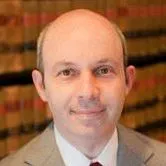The final four decisions

on Jun 26, 2010 at 5:37 pm
At this time of year, it becomes possible to predict the likely authors – and therefore the likely outcomes – of decisions. By tradition, the Court attempts to evenly distribute majority opinions, both within individual “sittings†and across the entire Term. At the end of the Term, it often becomes apparent that some of the remaining cases logically must have been assigned to particular authors.
The longest-outstanding case is Bilski v. Kappos, which involves the patentability of “business methods.â€Â Bilski was argued in November. The only Justice who has not issued a majority opinion from that sitting is Justice Stevens, which makes him the very likely author. Justice Stevens tends to take a narrow view of patent rights. He notably joined Justice Breyer’s opinion in Laboratory Corp. v. Metabolite in 2006 arguing for a narrow interpretation of process patent rights, which is a similar issue.
At oral argument in Bilski, Justice Stevens was very engaged. He asked counsel for the patentee the following telling question: “But is it correct that there’s none – none of our cases has ever approved a rule such as you advocate?â€Â Justice Stevens also was seemingly doubtful that the involvement of a machine could render a process patentable, and furthermore that software could be patentable, which suggests both a very narrow interpretation of business method patents and that the ruling could spell significant trouble for software patents.
I ultimately predict that the Bilski majority opinion will be authored by Justice Stevens and that the decision will be very significant in its narrowing of the scope of method patents. I expect that the delay in resolving the case will have arisen not from disagreement over whether this particular invention is patentable – I think the Court will unanimously hold that it isn’t – but over the scope of the rule.
The next longest-outstanding case is Free Enterprise Fund v. Public Company Accounting Oversight Board, which is the only remaining case that was argued in December. This is a harder call because neither the Chief Justice nor Justice Kennedy has authored an opinion from that sitting. I think that the Chief is a more likely author, however. In December, Justice Kennedy would have been working on not only his October and November opinions, but also the Citizens United campaign finance ruling, which was argued in a special September sitting. The Chief is also unlikely to leave himself without an opinion in a sitting.
If I’m right, that means that the PCAOB’s structure is likely to be invalidated as unconstitutional. At oral argument the Chief Justice asked no questions of counsel to the plaintiffs and was hostile to the defense of the statute, asking numerous questions. For example, he explained: “So you have got ‘for cause’ squared, and that’s – that’s a significant limitation that Humphrey’s Executor didn’t recognize and Morrison didn’t recognize.â€
I therefore predict that the Court will reverse in Free Enterprise Fund, holding the structure of the PCAOB unconstitutional.
The next case is McDonald v. City of Chicago, which presents the question whether the Second Amendment’s right to keep and bear arms is “incorporated†and therefore applies to state and local gun regulation.  McDonald was argued in February, and the only Justice not to write from that sitting is Justice Alito. He therefore likely has the Court’s opinion.
Justice Alito was a member of the five-Justice majority that recognized a Second Amendment right outside the context of militia service in the Heller case. He therefore is a likely vote for finding incorporation. At oral argument in McDonald, Justice Alito seemed quite doubtful about the City’s efforts to suggest a narrow ground for ruling.
I predict that Justice Alito will write the Court’s opinion in McDonald recognizing that the Second Amendment is incorporated. But given Justice Alito’s sensitivity towards law enforcement, I doubt that the opinion will call into question a broad swath of firearms regulation.
The final outstanding case is Christian Legal Society v. Martinez, which was argued in April. Neither Justice Stevens nor Justice Ginsburg authored an opinion from that sitting. There is also the further complication that, given doubts about the record and the shortness of available time to write an opinion, the Court will dismiss the case over a dissent.
Though it is very difficult to tell, I think that the most likely outcome in these circumstances is that Justice Ginsburg will issue a majority opinion in favor of Hastings Law School on the relatively narrow basis that the plaintiffs stipulated that the school had a neutral “all comers†policy that did not discriminate against this group but instead provided that all groups must accept all students.


